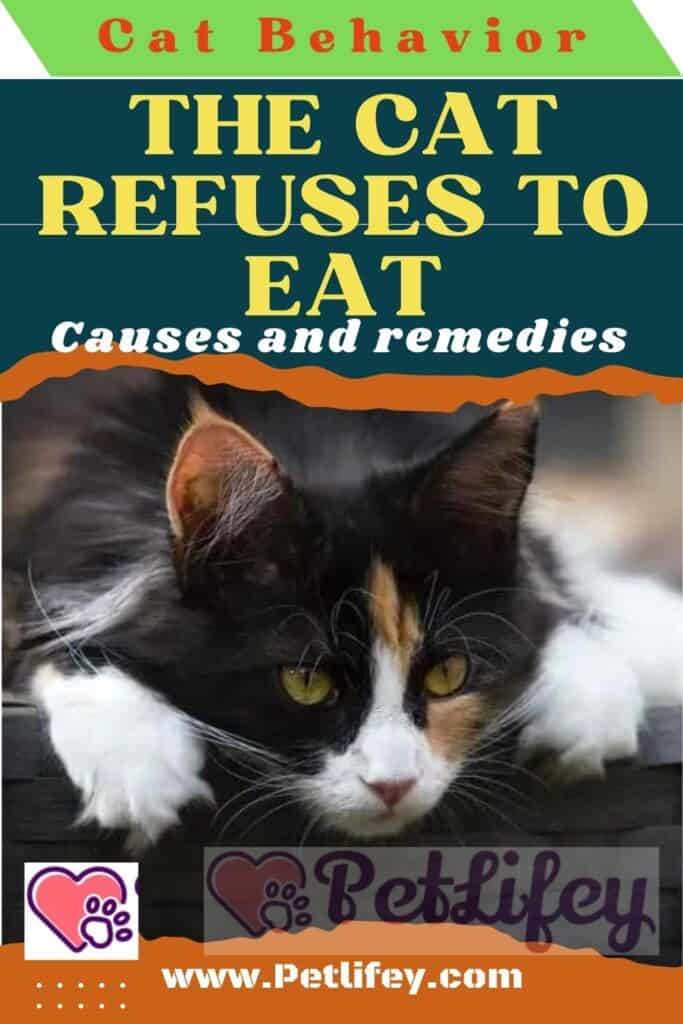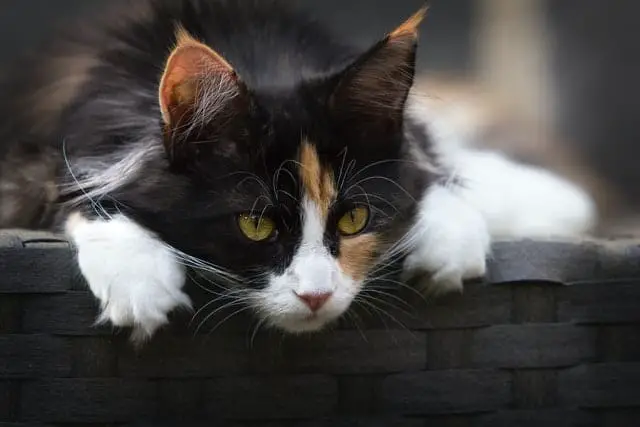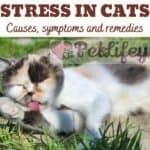
Does your cat not want to eat? Here is how to interpret this attitude and all the solutions to be adopted to make him return his appetite.
As attentive and caring hosts, we have noticed that the bowl of food has been practically intact for a few days. It is normal to be alarmed and wonder why our cat, usually used to eating his ration of baby food, refuses to do so. Here’s how to interpret this alarm bell: first of all it is essential to understand what the possible causes of the lack of appetite can be and to remedy them.
Index
- The cat: an animal of habit
- If the cat does not eat: the 7 possible causes
- Change of habits
- How to remedy the change of routine
- Food preferences
- How to remedy the change of baby food
- Stress, anxiety or depression
- How to improve the psychological state of the cat
- Vaccinations
- How to remedy vaccine lack of appetite
- Summer heat
- How to remedy the summer heat
- Nausea and stomach upset
- How to remedy nausea
- Diseases and infections
- What to do in case of illness
The cat: an animal of habit
We never forget that our feline loves his routine. So a change as striking as not eating is certainly an attitude that causes no small concern. If we are attentive to his health and not very superficial in taking care of an adult cat or when he is a puppy, we will notice it immediately. If, on the other hand, we are too busy during the day and totally absorbed by work, the cat is not the animal for us: so let’s think about it before adopting one!
If the cat does not eat: the 7 possible causes
There may be several reasons why a cat refuses to eat: it is up to us to understand if it is a whim, if it is depressed or if it is a sign of a much more serious inner discomfort. We have researched 7 causes that can lead a cat not to eat and for each of them we have proposed a solution. Here’s what they are.
Change of habits
As already mentioned, the cat is an extremely monotonous animal with regard to its daily rituals: it does not like to change its type of diet, or to move its bowl or even the time of feeding. It is always we who will have to adapt to his habits of him, and never the other way around. The cat could therefore refuse to eat because, sometimes out of forgetfulness or to better manage our commitments, we gave it food at different times than usual.
How to remedy the change of routine
The answer may seem obvious: simply by avoiding doing it! If we do not have the possibility to give him fresh food when it is time for the baby food we could ask a trusted friend to go home and feed him: in this way we will not only provide his meal at the established time, but it is also a way to check it out when he’s alone at home.
Food preferences
Sometimes the cat may even prefer one dish over another. If we have changed the brand or type of meal, it may be difficult to get used to it. We always prefer excellent quality food: poor meals, which are often the cheapest ones, in the long run can lead to problems to his health and damage to the coat. Or it could be an idea to stimulate him with catnip: he will go crazy!
How to remedy the change of baby food
If we notice that the cat has a hard time getting used to the food we offer it, even though it is of excellent quality, we have to get it used to the new meal in small steps. At first we can start giving it in small portions and then hope that his palate begins to appreciate it. There are also cats that never get tired of the usual food: you might be lucky!
Stress, anxiety or depression
Instead of a physical problem, the cause of the refusal of food could be a psychological discomfort. The change of home, a new arrival in the family, including when a baby is born, could induce symptoms of loss of appetite in the cat. If a situation of severe stress and psychological distress is experienced at home, the cat could suffer from it: we do not think that the feline does not notice it.
How to improve the psychological state of the cat
If we live in a difficult situation at home, whether due to a move that has just happened or for a new arrival or for couple problems, it is important to make our cat understand that we are always there for him. It is essential to show affection to our cat and make him feel always important in our life, even when problems and discomforts can almost completely absorb us.
Vaccinations
Vaccinated cat
Even a recent vaccination could cause our cat to lose appetite. If we have recently given him a vaccination, it is likely that it is a side effect. Before worrying unnecessarily we can talk to our veterinarian, who will certainly know how to reassure us about the effects and benefits of the vaccine.
How to remedy vaccine lack of appetite
As this is often a short-lived side effect, the disorder should go away completely within 3-4 days. If we are not convinced that it only depends on that, the best thing is to contact a veterinarian and raise our concerns.
Summer heat
Water – the best remedy for the summer heat
It may happen that with the advent of summer and high temperatures, the cat may lose its appetite. On the other hand, we too prefer to eat sometimes not to get heavy and we prefer fresh food to the usual winter meal. So it is normal for our cat to suffer from the heat too.
How to remedy the summer heat
When we notice that the cat seeks shelter in the cool and refuses to eat, it is probably suffering from the heat. It is essential to make him always find the bowl of water at his disposal full and never forget to change it: especially in summer, the feline’s dry mouth could prevent him from enjoying his usual lunch, so let’s hydrate it!
Nausea and stomach upset
It is not uncommon for cats to experience indigestion symptoms, often caused by the hairballs they ingest. If the cat suffers from nausea and cannot vomit what is bothering him, it is likely that the lack of appetite may be prolonged.
How to remedy nausea
If hairballs are the cause, all you can do is wait for me to throw them out. In the most serious cases, however, it is always advisable to seek the advice of the veterinarian: he could recommend homeopathic or pharmaceutical remedies to make our poor cat pass the nausea.
Diseases and infections

Dental checkup of the cat
In the most serious cases, lack of appetite could hide reasons of little concern, such as a toothache or problems related to oral hygiene , or more serious reasons. Viral diseases such as feline herpes or FIV have lack of appetite among the main symptoms. Unfortunately, the lack of appetite is a wake-up call for various diseases: it could be infections, kidney failure, pancreatitis, gastrointestinal problems and cancer. We also pay attention to the other symptoms to get a clearer picture of the situation.
What to do in case of illness
The only thing to do is to contact the vet immediately, before it becomes an anorexic and completely weak cat. It is also important to provide him with a detailed picture of the various symptoms of our cat that we noticed in the previous days: it will help the doctor to have a more complete total situation and provide us with a solution. After a series of tests and investigations he could opt for both pharmaceutical remedies and surgical operations: if the problem of lack of appetite were to pursue the solution it could be a rhino-gastric or esophageal tube to administer food.






